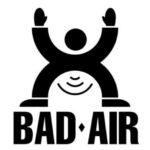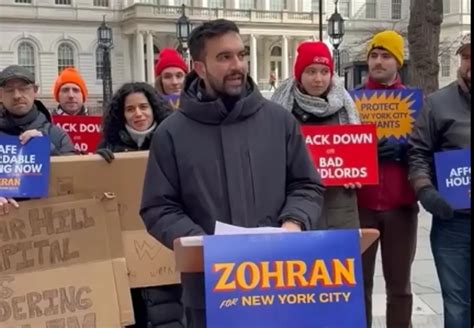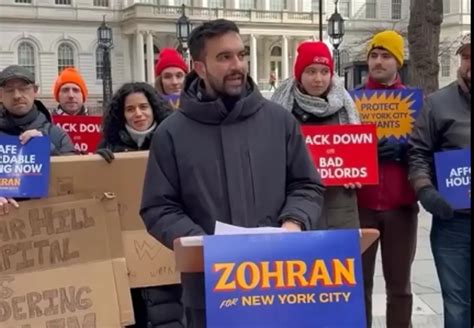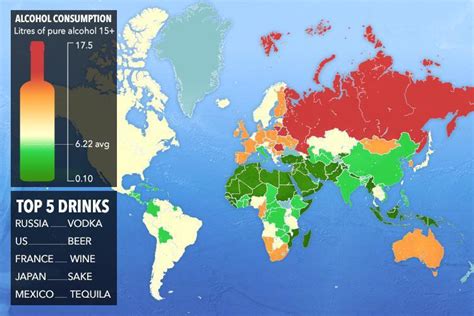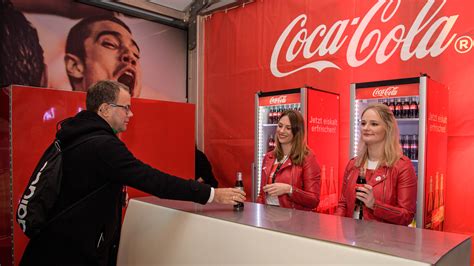
Coca-Cola is grappling with a sales slump potentially triggered by a recent viral video depicting alleged unsanitary conditions at a bottling plant in Northern Ireland. The beverage giant is actively implementing damage control strategies to mitigate the impact and reassure consumers about the safety and quality of its products.
Coca-Cola is facing a consumer confidence crisis following the circulation of a viral video purportedly showing substandard hygiene practices at one of its bottling facilities in Northern Ireland. While the company maintains that the video does not accurately represent its rigorous safety standards, early sales figures indicate a noticeable decline, prompting an urgent response from the multinational corporation. According to a statement released by Coca-Cola, the company is “disappointed by the contents of the video” and is “conducting a full and thorough investigation.”
The controversy erupted last week when the video, allegedly filmed by a disgruntled employee, began circulating on social media platforms, rapidly gaining traction and widespread attention. The footage purportedly showed unclean surfaces, stagnant pools of liquid, and inadequate pest control measures within the bottling plant. Although the video’s authenticity remains a subject of debate, the immediate impact on consumer perception has been significant.
“The safety and quality of our products are our highest priority,” stated a Coca-Cola spokesperson. “We adhere to stringent manufacturing standards and have robust quality control procedures in place. We are taking these allegations extremely seriously and are committed to addressing any concerns.”
Coca-Cola’s response includes a comprehensive internal audit of the Northern Ireland facility, as well as a public relations campaign aimed at reassuring consumers about the company’s commitment to hygiene and safety. The company is also working with local health authorities to ensure compliance with all relevant regulations.
Industry analysts suggest that the speed and reach of social media have amplified the potential damage to Coca-Cola’s brand reputation. “In today’s digital age, a single viral video can have a profound impact on a company’s bottom line,” said marketing expert Sarah Jenkins. “Consumers are quick to share their opinions and experiences online, and negative publicity can spread like wildfire.”
Coca-Cola is not the first major food and beverage company to face a crisis stemming from viral videos alleging unsanitary conditions. In recent years, similar incidents have affected brands across the industry, underscoring the importance of transparency and proactive crisis management in the digital age. The company’s proactive measures include increased facility tours for media and influencers, showcasing their rigorous cleaning protocols, and highlighting employee training programs focused on hygiene and safety.
The economic impact of the sales dip remains uncertain, but early estimates suggest a potential loss of millions of dollars in revenue. Coca-Cola shares have also experienced a slight decline in the stock market, reflecting investor concerns about the long-term implications of the controversy. The company is hoping to quickly restore consumer trust to prevent further damage to its financial performance.
Coca-Cola’s recovery efforts extend beyond the immediate crisis management. The company is also investing in enhanced monitoring systems and advanced cleaning technologies to prevent similar incidents from occurring in the future. These investments are part of Coca-Cola’s ongoing commitment to continuous improvement and maintaining the highest standards of product safety and quality.
The long-term effects of the viral video incident will depend on Coca-Cola’s ability to effectively address consumer concerns and restore confidence in its brand. The company’s response will be closely watched by industry experts and consumers alike, as it navigates this challenging situation in the age of social media transparency. Coca-Cola has also launched a social media campaign directly addressing the video and emphasizing their safety protocols, using the hashtag #CokeQuality to centralize their message.
Coca-Cola’s internal investigation is expected to be completed within the next few weeks. The findings will be shared with regulatory bodies and made public to demonstrate the company’s commitment to transparency. This transparency is considered crucial for rebuilding trust with consumers who may have been affected by the viral video. They are also partnering with independent auditing firms to conduct regular, unannounced inspections of their facilities.
The impact is not limited to just sales. Brand perception surveys are being conducted to gauge the extent of the damage to Coca-Cola’s image. The results will help tailor their marketing and communication strategies to specifically address the concerns of different consumer segments. The company is working to reassure loyal customers and win back those who may have become skeptical due to the viral video.
Coca-Cola’s response also includes engaging with key opinion leaders and influencers to provide accurate information and dispel misinformation. This strategy aims to counteract the negative narratives that have been circulating online and reinforce the company’s commitment to quality and safety. These influencers are being given tours of the facilities and opportunities to speak directly with Coca-Cola’s quality control teams.
Furthermore, Coca-Cola is using this incident as an opportunity to reinforce its employee training programs. All employees are undergoing additional training on hygiene practices and safety protocols. The company believes that a well-trained workforce is the best defense against potential quality control issues. The training emphasizes the importance of reporting any potential problems immediately, fostering a culture of transparency and accountability.
Coca-Cola is emphasizing that their commitment to sustainability and environmental responsibility remains unwavering. They are highlighting initiatives aimed at reducing waste, conserving water, and minimizing their carbon footprint, reinforcing their position as a responsible corporate citizen. This is partly in response to criticisms about the environmental impact of their products and operations, which have been amplified by the viral video incident.
The situation also highlights the challenges that global brands face in maintaining quality control across their vast supply chains. Coca-Cola has a complex network of bottling plants and suppliers around the world, making it difficult to ensure consistent standards everywhere. The company is working to strengthen its oversight and monitoring processes to mitigate these risks. This includes investing in advanced technology that can track and monitor product quality in real-time, from raw materials to finished goods.
This incident serves as a cautionary tale for other companies in the food and beverage industry. It underscores the importance of investing in robust quality control systems, maintaining transparency with consumers, and being prepared to respond quickly and effectively to any crisis that may arise. The speed at which information spreads online means that companies must be proactive in managing their reputations and building trust with their stakeholders.
Coca-Cola’s leadership team is actively involved in overseeing the company’s response to the viral video incident. They are working closely with the company’s communications, operations, and quality control teams to ensure that all necessary steps are being taken to address the concerns of consumers and restore confidence in the brand. They are also engaging with investors and other stakeholders to provide updates on the company’s progress.
The situation has also prompted a broader discussion about the role of social media in shaping consumer perceptions and influencing corporate behavior. Social media can be a powerful tool for holding companies accountable, but it can also be a source of misinformation and unfair criticism. Companies must learn to navigate this complex landscape and engage with consumers in a responsible and transparent manner.
Coca-Cola is using this incident as an opportunity to strengthen its relationships with its bottling partners. The company is working closely with its partners to ensure that they are adhering to the same high standards of quality and safety. This includes providing additional training, resources, and support to help them improve their operations.
The company is also working to address the concerns of its employees. Coca-Cola recognizes that its employees are its most valuable asset, and it is committed to providing them with a safe and supportive work environment. The company is encouraging employees to speak up if they have any concerns about the company’s operations, and it is taking steps to address those concerns promptly and effectively.
Coca-Cola is emphasizing its long history of commitment to quality and safety. The company has been in business for over 130 years, and it has built a reputation for producing high-quality products that consumers can trust. The company is working to reassure consumers that this incident is an isolated event and that it is committed to maintaining its high standards of quality and safety.
The incident is a stark reminder of the power of viral content and the challenges that companies face in managing their reputations in the digital age. Coca-Cola is taking this situation seriously and is committed to taking all necessary steps to address the concerns of consumers and restore confidence in its brand. The company is working to be transparent, accountable, and responsive in its actions, and it is committed to learning from this experience and improving its operations.
The company’s legal team is also investigating the origins of the viral video to determine if any laws were broken or if there was any malicious intent behind the video’s release. This investigation is separate from the internal audit of the bottling facility and is focused on the legal aspects of the situation.
Coca-Cola is also working with third-party organizations to verify the accuracy of its claims about its quality control processes. These independent audits will provide additional assurance to consumers that the company is committed to maintaining the highest standards of safety and hygiene. The results of these audits will be made public to further demonstrate the company’s commitment to transparency.
The viral video incident has also prompted a review of Coca-Cola’s crisis communication plan. The company is working to improve its ability to respond quickly and effectively to any future incidents that may arise. This includes developing a more robust social media monitoring system and training employees on how to respond to online criticism.
Coca-Cola is also focusing on innovation and product development as part of its recovery efforts. The company is working to introduce new products and flavors that will appeal to consumers and help to reinvigorate its brand. This is a long-term strategy that is designed to ensure the company’s continued success in a rapidly changing market.
The incident has also highlighted the importance of ethical sourcing and sustainable supply chains. Coca-Cola is working to ensure that all of its suppliers adhere to the same high standards of quality and safety. This includes conducting regular audits of its suppliers and working with them to improve their operations.
The company is also investing in research and development to improve its packaging and reduce its environmental impact. Coca-Cola is committed to using more sustainable materials and reducing the amount of waste that it generates. This is part of the company’s broader commitment to sustainability and environmental responsibility.
Coca-Cola’s response to the viral video incident is a complex and multifaceted effort that involves a wide range of stakeholders. The company is working to address the concerns of consumers, investors, employees, and suppliers. It is committed to being transparent, accountable, and responsive in its actions, and it is determined to restore confidence in its brand. The outcome remains to be seen, but the company’s commitment to quality, safety, and transparency will be critical to its success.
Coca-Cola is also actively engaging with consumer advocacy groups to address their concerns and solicit feedback on its recovery efforts. This collaboration is intended to ensure that the company’s actions are aligned with the needs and expectations of consumers. The feedback received will be used to refine the company’s strategies and improve its operations.
The company is also working with local community leaders to address any concerns that may arise in the communities where its bottling plants are located. Coca-Cola recognizes that it has a responsibility to be a good corporate citizen and to contribute to the well-being of the communities in which it operates.
The Coca-Cola company has a long history of resilience, having weathered various crises throughout its existence. This experience has equipped the company with the knowledge and resources to effectively manage challenges and emerge stronger. The current situation is no exception, and the company is confident that it will overcome this obstacle and continue to thrive.
Coca-Cola is also using this incident as an opportunity to strengthen its relationships with its retailers. The company is working closely with its retailers to ensure that they have the information and support they need to address any customer concerns. This includes providing them with marketing materials, training, and other resources.
The viral video incident serves as a reminder that companies must be vigilant in protecting their reputations. In today’s digital age, a single negative event can quickly spread and damage a company’s brand. It is essential for companies to have robust crisis management plans in place and to be prepared to respond quickly and effectively to any challenges that may arise. Coca-Cola’s response to this situation is a testament to its commitment to quality, safety, and transparency.
Frequently Asked Questions (FAQ)
1. What is the core issue Coca-Cola is currently facing?
Coca-Cola is facing a sales decline and a consumer confidence crisis resulting from a viral video that allegedly depicts unsanitary conditions at one of its bottling plants in Northern Ireland. The video, shared widely on social media, has raised concerns about the company’s hygiene and quality control standards.
2. What immediate steps has Coca-Cola taken in response to the viral video?
Coca-Cola has launched a comprehensive internal audit of the Northern Ireland facility, initiated a public relations campaign to reassure consumers, and is collaborating with local health authorities to ensure compliance with regulations. They’ve also increased facility tours for media and influencers to showcase hygiene protocols.
3. Has the authenticity of the viral video been confirmed?
While Coca-Cola has expressed disappointment with the video’s content and launched an investigation, the authenticity of the video and the claims it makes remain a subject of debate. The company is taking the allegations seriously regardless and addressing consumer concerns.
4. What long-term measures is Coca-Cola implementing to prevent similar incidents in the future?
Coca-Cola is investing in enhanced monitoring systems, advanced cleaning technologies, and reinforced employee training programs focusing on hygiene and safety. They are also working to strengthen oversight across their supply chain and partnering with independent auditing firms for regular inspections.
5. How is Coca-Cola addressing the impact on its brand perception and consumer trust?
Coca-Cola is conducting brand perception surveys to gauge the extent of the damage to its image and tailoring marketing and communication strategies accordingly. They are engaging with key opinion leaders and influencers to dispel misinformation, reinforcing their commitment to quality and safety, and emphasizing their long history of maintaining high standards.



